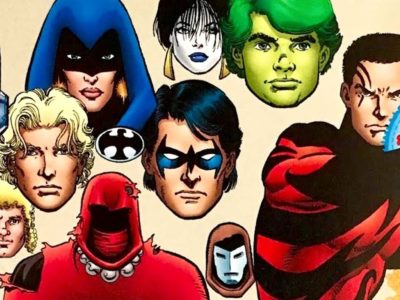
[ad_1]
Captain America might be one of Earth’s Mightiest Heroes, but his legend has spread across the Marvel Universe with the Guardians of the Galaxy.
By any measure, Captain America is one of the most influential superheroes of all time. With his career as a hero dating back to World War II, Captain America has been idolized by countless people the world over. His unwavering heroism, bravery, and adherence to justice are the golden standard for what it means to be a hero. The influence of the First Avenger stretches beyond that of America and even his own timeline.
While the Guardians of the Galaxy don’t spend much time on Earth, even they felt Captain America’s influence, thanks to two heroes inspired by the Avenger, Jack Flag and Major Victory.
Debuting in Captain America #434 by Mark Gruenwald and Dave Hoover, Jack Harrison was a young man who operated Captain America’s hotline network. What had been a simple life for Jack became complicated and dangerous when the Serpent Society began to infiltrate his small town of Sandhaven, Arizona. After training in martial arts and weight lifting, Jack donned a disguise and the name Jack Flag, an identity he believed would make Captain America proud.
Jack was able to infiltrate the Serpent Society; shortly after, on a mission by King Cobra, Jack fought Mr. Hyde and became doused with his volatile chemicals. Jack gained superstrength, durability, and stamina from Mr. Hyde’s chemicals and became a superhero proper. Many years later, Jack was apprehended by the Thunderbolts during Marvel’s Civil War and sent to a superhuman prison within the Negative Zone. Eventually, Jack was taken in by the Guardians of the Galaxy as they helped him escape the prison; from there he became an active member of the team.
However, Jack Flag was not the first member of the Guardians of the Galaxy that took inspiration from Captain America. In fact, Major Victory, the founding member of the original alternate future Guardians of the Galaxy, drew heavy inspiration from the classic Avenger, even carrying his shield into battle. Making his first appearance in Marvel Super-Heroes #18 by Arnold Drake and Gene Colan, Vance Astrovik was born in Saugerties, New York in the late 20th century. Vance joined the U.S. Air Force and became the youngest member to be inducted into it’s training program for prospective astronauts. In a mission known as Project: Starjump, Vance was to ride aboard the Odysseus 1 to the Alpha Centauri system. Being as his ship was not equipped with faster-than-light travel, Vance was given a special containment suit as well as preservatives in his blood to prevent him from aging during his flight.
When Vance arrived at Centauri IV he was attacked by a humanoid native named Yondu. The alien race known as the Badoon attacked Centauri IV forcing Vance and Yondu to escape via the Odysseus 1 back to Earth. By then it was the year 3007 A.D. and the life Vance had known was gone. Vance and Yondu teamed up with Charlie-27 and Martinex, the two other survivors of the Badoon attack, thus forming the Guardians of the Galaxy with Vance as the leader.
The Guardians of the Galaxy would embark upon many different adventures over the subsequent years rife with time travel and intergalactic battles. It was during one such time traveling incident that Vance found himself back in his own time. Vance vowed to find Captain America’s shield, long since lost. Vance found the shield, and after being healed after a terrible battle, was able to leave his containment suit. Vance decided to adopt a new outfit and name more befitting his wielding the legendary shield: Major Victory.
Both Jack Flag and Major Victory would continue to have countless more adventures throughout time and space. Regardless of where or when they are, their adherence to the ideologies of what it means to be a hero never change. It’s common to find someone moved by Captain America; it’s decidedly less common to actually find someone who managed to become a fully-fledged superhero because of him. It’s a true testament to Captain America’s unfaltering status as a hero that he continues to inspire people, both in his time and beyond.
About The Author
[ad_2]





